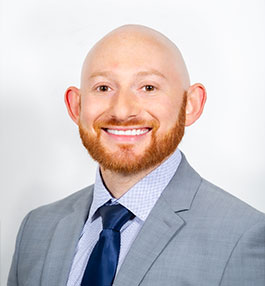Preventing neck and back injuries are two ways of protecting your spine from painful degenerative conditions and a future need for spine surgery. Surprisingly, daily stretching and exercising are easy preventative measures. Continue reading for more tips—and how to know when to talk to your doctor about neck or back pain.
What Causes Neck and Back Pain?
Neck and back pain commonly stems from injuries to the soft tissue surrounding the cervical, thoracic, or lumbar region of the spine. Injuries include muscle strains or ligament sprains. More severe injuries can occur, as well—such as vertebral fracture or damage to the intervertebral discs caused by whiplash or other types of spinal injuries. Poor posture or body mechanics, repetitive motion, worn spinal joints, and degenerative disc disease (DDD) are other causes.
How to Prevent Neck Injuries
 The neck, or cervical, region of the spine is the most flexible area of the vertebrae and is more prone to injury which can lead to pain. The following tips can help minimize those potential problems:
The neck, or cervical, region of the spine is the most flexible area of the vertebrae and is more prone to injury which can lead to pain. The following tips can help minimize those potential problems:
Avoid hunching your neck: Avoid a forward-leaning posture while using a computer or cell phone to prevent straining the neck muscles. Take short breaks from your device every 15-20 minutes.
Adopt a good sleeping position: Proper sleeping positions protect against pain or discomfort caused by a stiff neck. You can prevent neck and back pain by sleeping with your spine aligned.
Manage stress: Surprisingly, managing emotional stress is one of the ways to prevent neck pain—and even radiating pain to your shoulders, arms or back. Ease muscle tension with techniques such as neck stretches or massage therapy.
Seek medical attention after an accident: Whiplash is a common auto accident injury that can leave you with a herniated disc, vertebral fracture, and disabling neck pain. Avoid the risk of chronic pain, loss of range of motion, or neck surgery by seeing a doctor right away.
 Ways to Prevent Back Injuries
Ways to Prevent Back Injuries
Preventing back injuries which can lead to back pain is easier than you might think. Here are some strategies to try:
Avoid sitting for long periods: Your body and spine are engineered for movement. Sitting for prolonged periods for work or living a sedentary lifestyle can cause the joints to become stiff or inflamed. Keep your spine healthy and flexible by getting up and moving around at intervals.
Practice good posture: Good posture when standing, walking, or running helps maintain spinal alignment and keeps back pain away. Lifting heavy objects the correct way can also prevent spinal injury, e.g., a herniated disc. Additionally, foot orthotics can help improve alignment and posture.
 Exercise and weight management: Being overweight puts increased pressure on your spine and discs. A healthy diet and regular exercise can prevent these issues. Back exercises, in particular, help to strengthen the muscles and protect against injury.
Exercise and weight management: Being overweight puts increased pressure on your spine and discs. A healthy diet and regular exercise can prevent these issues. Back exercises, in particular, help to strengthen the muscles and protect against injury.
Invest in ergonomic chairs: Office chairs designed for good lumbar support promote proper alignment of the shoulders, hips, and spine. In addition to improving your overall sitting posture, good ergonomics minimize back injury from slouching and the risk of disc surgery.
When to Talk With Your Doctor About a Back or Neck Injury
Though knowing how to prevent back or neck injury helps you protect your spine and thus potentially avoids pain, you can still experience pain due to age-related spinal degeneration. Talk to your doctor if the pain is disabling, persists beyond a week, gets worse, or interferes with daily function. Pain can be prolonged if it relates to issues like a herniated or bulging disc, spinal arthritis, fracture, misalignment, or pressure on the nerve.
Your doctor or orthopedic specialist will discuss treatment options to reduce or eliminate chronic pain, improve spine function, and slow degeneration. Treatment can range from non-steroidal anti- inflammatory drugs (NSAIDs) and physical therapy to spine surgery.
Connect With a Professional Via rediscover
If your doctor recommends disc replacement or spinal fusion surgery as a solution and you would like to learn more, rediscover is an extensive resource for spine health tips and information about new, clinically safe spine treatments—or to find a surgeon.
 About the Author:
About the Author:
Dr. Katsevman was born in Ukraine and grew up in Chicago, Illinois. He earned his undergraduate and medical degree from Loyola University in Chicago, where he graduated with Honors in Bioethics & Professionalism. He completed neurosurgery residency at West Virginia University followed by fellowship training in minimally invasive and complex spine surgery at Barrow Neurological Institute in Phoenix, Arizona.
Dr. Katsevman is currently practicing in Naples, Florida as a partner of a multidisciplinary group Neuroscience and Spine Associates (NASA).
These individuals can inspire your journey to healing and life after disc replacement surgery—and the hope of freedom from spine-induced pain and discomfort.
To Find a Spine Surgeon That's Right for You, Use our Surgeon Locator